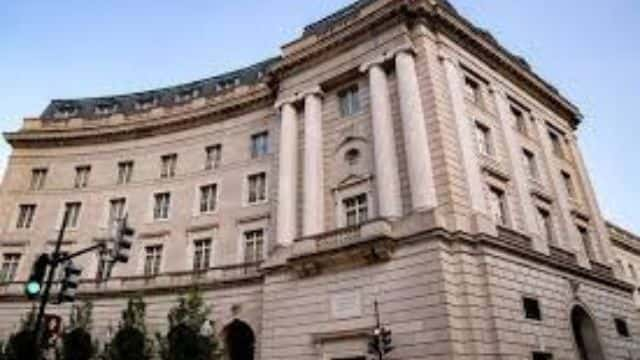In the case of West Virginia et al. v. Environmental Protection Agency et al., the Supreme Court of the United States delivered its ruling on June 30, 2022. This ruling, which concluded that the EPA went over its power, will have numerous advantages for Bitcoin.
At first look, it seems like this lawsuit has something to do with the Clean Air Act and the EPA’s authority to control carbon dioxide emissions. And if that was the only goal, the outcome would be favourable.
An EPA plan that would have greatly raised the cost of operating fossil fuel electricity plants was prevented from being put into effect.
The EPA’s objective was to utilize its regulatory authority to reduce the share of coal in the country’s total energy mix from 38 to 27 per cent by 2030.
Fundamentally, the EPA was attempting to utilize an “obscure, never-used piece of the law” (Section 111(d) of the Clean Air Act) as a broad “permission slip” to rebalance the power mix of the entire nation.
Leaving aside the significant amount of procedural stalling, the Court had to decide whether or not Congress intended for Section 111 of the Clean Air Act to give the EPA the enormous authority it sought to exercise.
The EPA probably would have been successful in enforcing its restrictions if it had issued a less broad decree.
The Court has, however, previously ruled that an administrative body cannot automatically assume that “Congress wanted to bestow such jurisdiction” where the legislation does not expressly and unambiguously do so, particularly when there are “exceptional circumstances” of “economic and political consequence.”
The Court came to the conclusion that such a comprehensive restructuring of the nation’s energy sector, particularly when using such a mysterious and underutilized provision, qualified as that kind of substantial matter.

“Capping carbon dioxide emissions at a level that will compel a national shift away from the use of coal to generate power may be an appropriate response to the current issue.
But it seems improbable that Congress provided EPA with the authority to develop such a regulatory framework on its own in Section 111.
Congress, or a government agency operating under a clear delegation from that representative body, must make a decision of this magnitude and significance. Impact On Bitcoin:
The EPA was prevented from enforcing a regulation that may have adversely affected miners’ capacity to access cheap power, which is one benefit to the bitcoin mining sector that is immediately apparent.
Additionally, additional regulation in the direction the EPA was going could have affected the freedom of operation of miners by encroaching on the uses of power. This place completely stopped that particular policy.
The revival of the main question theory is a much bigger deal, though, because it prevents the EPA from using its power unilaterally to change the nation’s energy mix.
This might be applied whenever an administrative agency (such as the SEC, OCC, CFTC, IRS, or Treasury more broadly, etc.) tries to increase its scope of the authority without “clear congressional authorisation.”
Of course, it is still up for debate and therefore much more litigation as to whether or not a particular instance of agency overreach will be viewed by the Court as an “exceptional situation” where they will apply the major question doctrine.
This does imply that people impacted should evaluate whether they can raise an objection based on this justification if an administrative agency attempts to expand its authority over Bitcoin in an unprecedented manner without explicit Congressional authorisation (in addition to whatever other arguments they have).
Given the importance of Bitcoin on a worldwide scale, I believe such arguments should be tested even in the absence of evidence of larger repercussions from the agency’s new regulation.
Final Remarks
Even though it is not specifically acknowledged in this ruling, it can be said that this is another step in the direction of finally overturning the horrible Chevron deference rule.
Chevron deference, in essence, allows administrative agencies to interpret ambiguity in their enabling statutes without consequence.
This theory has made it practically impossible in most situations to question the interpretation or decisions of a government agency or to hold them responsible to a fair standard when making decisions.
For instance, if a ditch has runoff in it following a significant rainstorm and the EPA and Army Corps of Engineers decide to label it “navigable waters” to assert their jurisdiction over it, the affected property owner has no real chance of overturning that absurd designation due to Chevron deference.
Since the early 1980s, the administrative state has exploded, in large part due to this almost complete lack of democratic accountability.
Read more:-
- According to a report, Trump believes that announcing his bid for president in 2024 now could divert attention away from the hearings on January 6. Republicans are concerned that he would harm them in the midterm elections
- Congressman demands resignation of PennDOT Secretary due to toll bridge plans
- Biden calls on petrol stations to lower their pricing in a tweet and receives acclaim from Chinese official media
According to Justice Gorsuch, the only difference if the Supreme Court overturned Chevron would be that courts would then carry out their obligation to use their independent judgment regarding what the law is.
that seemingly insignificant legal distinction will ultimately mean a lot to regular Americans, who will once again be able to hold their government accountable for its actions.
The sooner the court drops Chevron and orders the legislative branch of government as well as the administrative state to resume their proper functions, the better.


